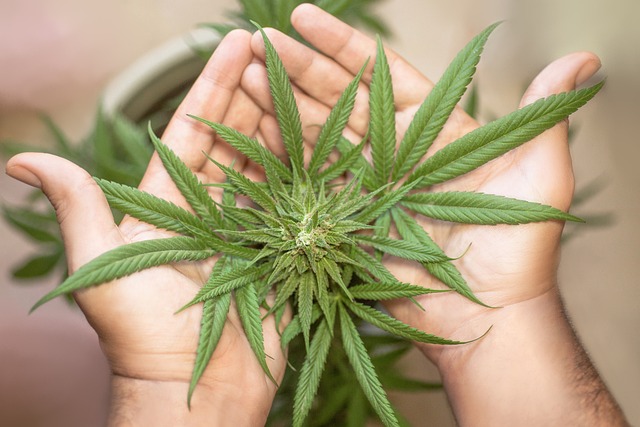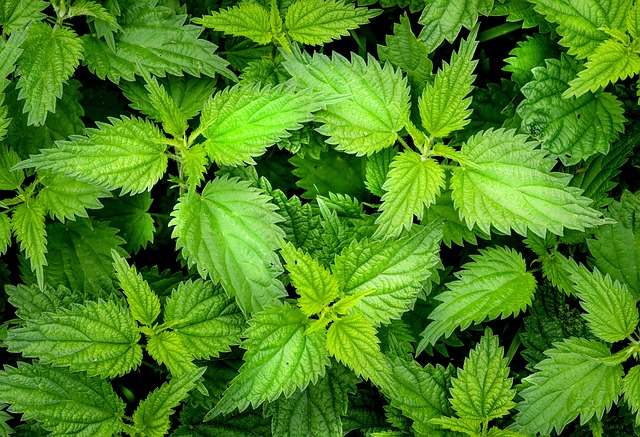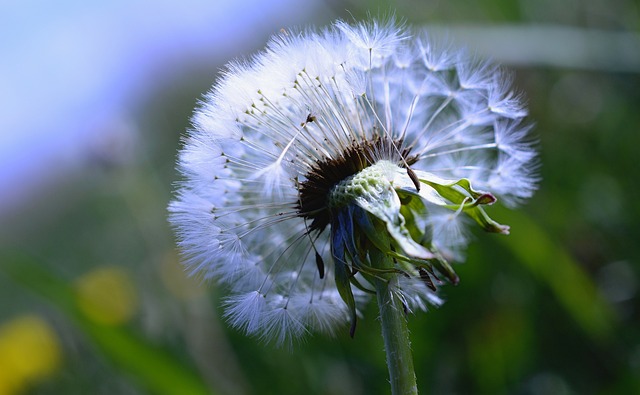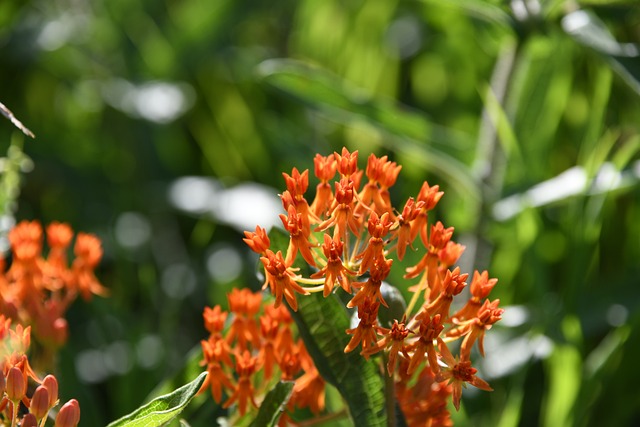In Colorado, THCA (tetrahydrocannabinolic acid), the non-psychoactive precursor to THC, is legally permissible and offers wellness benefits such as anti-inflammatory properties. It's distinct from THC in its legal status; while THC has been legal for recreational use since 2014, THCA-rich flowers are subject to state regulations with specific THC content limits. Consumers can access a wide variety of THCA products through the state's regulated market, but must ensure they purchase from reputable sources that comply with Colorado's stringent standards. The Department of Public Health and Environment sets guidelines for storage to preserve THCA's potency, advising keeping it in cool, dark, and dry conditions, and using airtight containers. THCA can be used in culinary creations by decarboxylating it into THC for psychoactive effects or leaving it as is for wellness purposes. Home cultivation of THC-rich plants is permissible under state law with adherence to local regulations, provided it's done within the legal framework. Colorado's marketplace offers a range of THCA products, from raw flowers to infusions for edibles, all within a regulated environment that prioritizes safety and legality. This summary highlights the legality of THCA in Colorado, its potential uses in wellness and culinary arts, and the importance of adhering to state and local laws for an enjoyable and compliant experience.
Exploring the nuances of THCA flower legality and utilization within Colorado’s regulated market, this comprehensive guide navigates consumers through the intricacies of compliance, sourcing premium-quality THCA buds, leveraging its wellness properties, preserving potency, and unlocking its full potential through decarboxylation. Whether you’re a novice or an experienced enthusiast, understanding how to safely and legally craft your own infusions and edibles with THCA flower is paramount for an enriching experience in the Centennial State.
- Understanding THCA Flower Legality in Colorado: A Compliance Guide
- Sourcing Quality THCA Flowers in Colorado's Legal Market
- The Benefits and Uses of THCA Flower in Wellness Routines
- How to Store and Preserve the Potency of Your THCA Flower in Colorado
- Decarboxylation: Unlocking the Potential of THCA Flowers
- Crafting Your Own THCA Flower Infusions and Edibles at Home Safely and Legally
Understanding THCA Flower Legality in Colorado: A Compliance Guide

In Colorado, the legal status of THCA flower, a precursor to THC found in cannabis, is subject to stringent state regulations. It’s imperative for consumers and businesses to stay informed on the evolving landscape of THCA legality within the state’s boundaries. As of the knowledge cutoff date, THCA is legally distinguishable from its psychoactive counterpart, THC, which has been fully legalized for recreational use since 2014 under Amendment 64. However, the possession and sale of THCA-rich flowers are governed by specific laws that define permissible limits of THC content. To navigate these regulations successfully, one must understand that THCA flowers with trace amounts of THC can be legal in Colorado, provided they meet the state’s threshold for THC concentration. Retailers and consumers alike must ensure compliance with these thresholds to avoid legal complications. The Colorado Department of Public Health and Environment sets the standards for allowable THC levels in cannabis products, including flowers. It’s crucial to keep abreast of these standards as they may evolve over time, reflecting changes in both state and federal regulations. By adhering to the established guidelines and keeping up-to-date with the latest legislative updates, individuals can responsibly enjoy THCA flower products within the legal framework established by Colorado’s regulatory bodies.
Sourcing Quality THCA Flowers in Colorado's Legal Market

In Colorado, where cannabis legislation has paved the way for a burgeoning legal market, discerning consumers seeking premium THCA flowers have a variety of options to explore. The state’s regulatory framework ensures that THCA, or tetrahydrocannabinolic acid, a non-psychoactive precursor to THC found in raw cannabis, is legally available for purchase and consumption within its borders. Sourcing top-tier THCA flowers begins with understanding the legal landscape and identifying reputable dispensaries and cultivators who prioritize quality and purity. Consumers looking for the highest quality THCA flowers in Colorado should look for licensed retailers with a proven track record of providing cannabis products that meet stringent state standards. These establishments often showcase a diverse selection of strains, each offering distinct terpene profiles and potential effects that can range from energizing to calming, depending on the individual’s physiology and the specific THCA flower chosen.
When venturing into Colorado’s legal market for THCA flowers, it’s crucial to conduct thorough research. This due diligence involves verifying licenses, reading customer reviews, and seeking out recommendations from knowledgeable sources within the cannabis community. By focusing on licensed and regulated dispensaries, consumers can confidently select THCA flowers that are not only compliant with state laws but also cultivated to preserve the natural benefits of raw cannabis. Engaging with local experts, such as budtenders who have an in-depth understanding of the products they sell, can further guide consumers to find the perfect THCA flower strain to suit their needs. Whether for personal use or exploration into the potential wellness benefits associated with consuming THCA, the Colorado market offers a rich selection of high-quality options for those looking to explore the legal landscape of THCA flowers.
The Benefits and Uses of THCA Flower in Wellness Routines

100% naturally-occurring THCA (Tetrahydrocannabinolic Acid), a non-psychoactive precursor to THC, has garnered attention in wellness routines. In Colorado, where THCA-rich hemp flowers are legal, this cannabinoid is celebrated for its potential health benefits. THCA is known for its anti-inflammatory properties and may support joint and muscle health without the psychoactive effects associated with THC. Users often incorporate THCA flower into their wellness practices by inhaling its smoke or vapor, which can provide relief from discomfort and promote a state of calm. The cannabinoid’s therapeutic potential extends beyond physical well-being; it’s also being explored for its effects on mood and stress levels, offering a natural alternative to conventional treatments. In Colorado, where the legislative framework supports the use of hemp-derived products, THCA flower is readily accessible and widely embraced as a key element in holistic health strategies.
Beyond its immediate wellness applications, THCA is also gaining recognition for its potential role in supporting overall health maintenance. In Colorado, where the legal landscape allows for such products, THCA flower can be a versatile addition to one’s daily routine. It can be consumed in various ways, including being infused into edibles or topicals, allowing for diverse options to cater to individual preferences and needs. The non-psychoactive nature of THCA makes it suitable for use throughout the day without impairment, thus fitting seamlessly into a wellness regimen that prioritizes both health and productivity. As research continues to unfold, the potential applications of THCA flower in wellness routines are likely to expand, further solidifying its place as a go-to choice for those seeking natural support for their well-being.
How to Store and Preserve the Potency of Your THCA Flower in Colorado

In Colorado, where THCA flower legality aligns with state regulations, proper storage and preservation techniques are paramount to maintain its potency. To safeguard the efficacy of your THCA flower, it’s crucial to store it in a cool, dark, and dry place away from direct sunlight and humidity. Airtight containers made of glass or a UV-proof material are highly recommended as they protect against light degradation and airborne contaminants that can diminish the flower’s potency over time. Maintaining a consistent temperature and humidity level is key; ideally, these conditions should mimic those found in a natural environment to prevent the THCA from converting into other cannabinoids, such as THC, which could alter its effects. Additionally, avoid handling the flower excessively, as oils from your skin can also affect its chemical composition. By implementing these storage practices, you’ll ensure that your THCA flower retains its full potential, offering a consistent and potent experience in Colorado’s regulated marketplace.
For long-term preservation, consider the option of refrigeration or freezing your THCA flower, particularly if you’re not planning to consume it immediately. This method significantly slows down the degradation process, allowing for a longer shelf life. Always ensure that the storage container is properly sealed and labeled with the date of packaging to keep track of its freshness. By adhering to these storage guidelines, enthusiasts in Colorado can enjoy the full benefits of their THCA flower, ensuring that it remains potent and effective for as long as possible.
Decarboxylation: Unlocking the Potential of THCA Flowers

THCA, or tetrahydrocannabinolic acid, is a non-psychoactive precursor to THC, the compound in cannabis that produces psychoactive effects. As interest in the medicinal and wellness benefits of cannabis continues to grow, many consumers are turning to raw cannabis flowers, commonly referred to as “THCA flowers,” which are rich in this acid. In Colorado, where the use of cannabis has been legalized for both medical and recreational purposes, THCA flowers have gained popularity due to their potential therapeutic properties and the absence of psychoactive effects that may be desirable for certain individuals or applications.
To unlock the full spectrum of benefits that THCA flowers offer, a process called decarboxylation is essential. This chemical reaction converts THCA into THC by removing a carboxyl group from the acid. This transformation occurs when cannabis is exposed to heat over a period of time, typically during the vaporization or combustion process. Decarboxylation is crucial for those looking to experience the psychoactive effects of THC if they choose to consume it in its activated form. However, for those interested in the therapeutic properties of THCA itself, care must be taken to avoid prolonged heating which could bypass the desired compound. In Colorado’s regulated market, understanding and controlling the decarboxylation process is key for consumers and manufacturers alike, ensuring that products meet the specific needs and preferences of the user. This knowledge also allows for the creation of diverse cannabis-based products, each tailored to different consumer desires within the legal framework established by Colorado’s cannabis regulations.
Crafting Your Own THCA Flower Infusions and Edibles at Home Safely and Legally

In the realm of cannabis culinary exploration, THCA flower infusions and edibles have become a popular pursuit among enthusiasts seeking to enhance their experience in legal jurisdictions like Colorado. The non-psychoactive precursor to THC found in raw cannabis, THCA (Tetrahydrocannabinolic Acid) offers potential wellness benefits and can be harnessed at home for culinary creations. When crafting your own THCA flower infusions or edibles, it’s crucial to adhere to both safety and legal guidelines. In Colorado, where the use of cannabis has been legally sanctioned, home cultivation is permitted under state law with certain limitations and local regulations. This allows for a personal garden where you can selectively harvest flowers rich in THCA for your culinary endeavors. To preserve the THCA content and avoid psychoactive effects, it’s important to decarboxylate the cannabis only when ready to use it in your recipes, as this process converts THCA into THC. Always ensure that you are sourcing your flowers from a legal and reputable dispensary or your own homegrown plants, following the state’s guidelines for possession and cultivation.
Creating THCA infusions or edibles involves careful dosing and precision to achieve the desired effects. Decarboxylation should be done correctly to ensure that the cannabinoids are activated without degrading them. Infusion methods can range from making cannabis-infused oils or butters, which can then be used as bases for a variety of dishes, to encapsulating THCA in a way that it can be digested and its effects felt once metabolized by the body. When incorporating THCA into edibles, it’s essential to consider the potency and onset time, as ingesting cannabinoids results in different effects compared to inhalation. Edibles should be portioned responsibly, with clear labeling of dosages to avoid overconsumption. As you venture into the world of THCA infusions and edibles, always prioritize safety by keeping your creations out of reach of children and pets, and ensure that your actions are compliant with local laws to enjoy this unique culinary experience responsibly and legally.
In conclusion, navigating the landscape of THCA flower legality and utilization in Colorado requires a clear understanding of compliance, quality sourcing, and proper handling. As established throughout this guide, THCA flower, while still federally illegal under the Controlled Substances Act, is legally available in Colorado provided it adheres to state regulations. Consumers interested in incorporating THCA flower into their wellness routines can confidently do so by following best practices for storage and preservation to maintain its potency. Additionally, understanding the decarboxylation process is crucial for unlocking the full potential of these flowers. For those looking to create infusions or edibles, doing so at home safely and legally is a rewarding endeavor that this guide has equipped you with the knowledge to undertake. Whether for wellness or other uses, THCA flower in Colorado offers a legal and regulated avenue for exploration, ensuring consumers have access to high-quality, compliant products.
